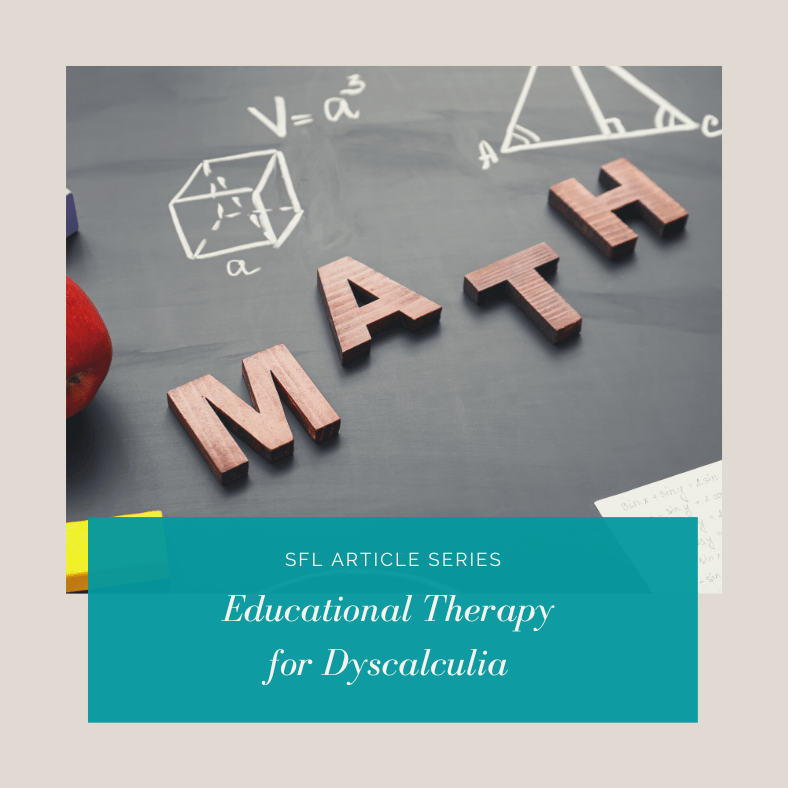No products in the cart.

Educational therapy can be an effective approach for dyscalculia or math instruction in general. Let’s explore the principles behind educational therapy and how it is used to address what students learn but also why and how they learn.
Educational Therapy Vs. Tutoring
Educational therapy, with its emphasis on goal setting, revisiting goals, self-reflection, and other executive functioning skills plays a pivotal role in tailored math instruction. It takes math education to a deeper level by addressing a student’s metacognition while assessing a student’s strengths and weaknesses to inform instruction. Unlike traditional tutoring, educational therapy considers various factors, including academic, social, and emotional aspects, significantly influencing a student’s learning journey. It goes beyond conventional practices, addressing underlying learning differences like dyscalculia and math anxiety while nurturing foundational math skills and building self-confidence.
Differentiated Instruction
An educational therapist will customize and/or differentiate the math curriculum to meet the unique needs and learning styles of the student, providing invaluable one-on-one attention. Through this approach, educational therapists can effectively address challenges and adapt teaching methods to match each student’s pace. Moreover, the use of customized learning strategies, visual aids, and real-world applications enhances engagement and effectiveness. By instilling cognitive flexibility, adaptability, and a focus on building confidence and motivation, these sessions lay the groundwork for measurable progress!
What to expect in a session with an Educational Therapist
While the structure of each session with an educational therapist is tailored to meet the specific needs of the student, certain key elements remain fairly consistent. For example, a typical math session with SfL Clinician, Susan Ardila, starts with a structured spiral review, revisiting fundamental concepts to ensure a comprehensive understanding. This warm-up exercise primes the student’s mind for upcoming learning while solidifying foundational math principles. Subsequently, targeted mini-lessons address specific areas of need, enhancing the student’s understanding and proficiency. Additionally, a segment dedicated to allowing students to choose what they want to learn and how they learn it empowers them to take ownership of their educational journey. This framework, combined with the integration of goal setting and self-reflection, provides a nurturing environment that supports students in overcoming challenges and thriving in mathematical exploration.
An essential component is the end-of-session reflection, where students assess the session’s effectiveness, identify areas for improvement, and celebrate their achievements. These moments of introspection foster personal growth and development, making the learning experience profoundly meaningful.
Learn more about how Educational therapy can inform effective math instruction or Contact Us to schedule an initial consultation to learn more about our services.
Written by Susan Ardila, MA. Math Education
Related Articles
Looking for Academic Support and other Educational Services?
You can schedule a free initial consultation to learn more about our services. We will listen to your concerns, answer any questions, learn about the student’s needs, and help guide you through our new student intake process.






